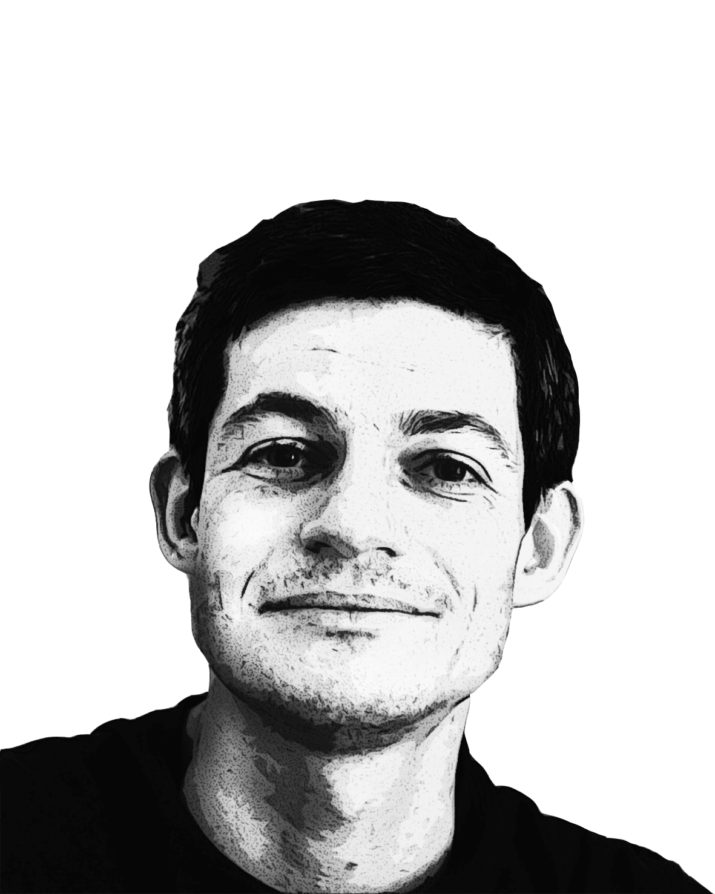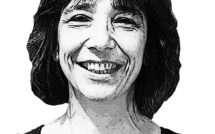

Since the 1970s, immigration has been one of the main issues discussed throughout the presidential campaigns in France. Given the Charlie Hebdo attacks, the attacks in November 2015, and the recent “refugee crisis,” this will most likely continue to be the case. I recently sat down with Dr. Nicolas Fischer, a tenured researcher from CNRS (Center for National Scientific Research), who specializes on immigration control and immigration policies in Europe. We talked about the current government’s policies on immigration, the political climate after the terrorist attacks in Paris, the influence of this climate on the way the immigrants and immigration are perceived, the possibility of a far-right victory in the elections, and a potential Frexit.
—Özden Ocak for EuropeNow
EuropeNow The current French president Hollande was elected after a long Sarkozy-era, where “immigration” became one of the most pronounced political questions. Sarkozy served as a president for only one term, but before that he was the Minister of Interior and made himself known for two immigration laws, his landmark project of “selective immigration politics,” and many infuriating remarks on non-European, Muslim, and African immigrants. He raised the stakes even higher after he was elected president by creating the infamous Ministry of Immigration, Integration, National Identity and Co-development, which in 2009 would launch a national identity debate juxtaposing immigration and French identity. Central to his immigration politics was also what he called a politique du chiffre, which meant deciding on the number of the “illegal” immigrants to be expelled each year. As a result, Sarkozy became one of the most criticized French Presidents for exploiting xenophobic feelings and posing a threat to the republican values of France. Leftists, intellectuals, and academics launched petitions demanding the closure of the Ministry of Immigration and National Identity, as well as ending the national identity debate it launched.
With this background in mind, I would like to ask how you would compare Holland’s presidency with that of Sarkozy with regards to their immigration politics. What has changed after Sarkozy in terms of the expulsions, identity controls/racial profiling, and of course a constant use of discriminatory, racist lexicon? Was there a relief after Sarkozy?
Nicolas Fischer Let’s say Hollande’s drawback on measure taken during the Sarkozy era has been selective in the early years of his term. One should also add that the 2015 attacks by members of ISIS changed—if not the policies—at least the way immigration issues were addressed and debated. After Hollande was elected, the so-called politique du chiffre was officially abandoned, at least in formal terms, but strong pressure remained on police forces and immigration boards to arrest and deport intensively. In the same way, the general speech on unauthorized immigration has been less explicitly racist in the early years of Hollande’s term. Sarkozy had introduced the idea that immigration policies could be driven not by economic or political considerations alone—labor or asylum—but that racial selection could also intervene. The socialist majority came back to a more “classic” divide, which, however, did not lead to more sensible policies: immigrants could become “regular” and could therefore be legally protected if they were considered as economically useful, if they came to join their relatives already in France (with restrictions), or if they were granted the refugee status. All others were deemed “irregular” and had to be deported, even if that had no chance of happening for most of them.
This is the position the left traditionally held. Things, however, changed in the wake of the 2015 attacks: first, pdt Hollande sparked off a major controversy when he proposed to pass a law allowing the executive branch to deprive convicted terrorists of their French nationality—a measure borrowed to the traditional programs of the far right, and that was both unnecessary and legally dubious. The project was finally abandoned, but it implied that the French nationality could be conditional for those who could be held under suspicion of terrorism—namely, members of Muslim minorities. Another step was taken with the multiple controversies over the alleged “lack of cultural integration” of French Muslims: controversies have been regularly emerging on the Islamic headscarf (leading to an even more grotesque debate on the “burkini,” e.g. the “Islamic swimsuit”), Muslim men’s alleged propensity for sexual assault on women, and so on.
This climate is, of course, supported by the conservative right, but the moderate left-wing majority is now largely relaying it. All in all, the socialist majority looks pretty divided on these issues: while Prime minister Manuel Valls has largely been recurring to islamophobic and racist clichés (and had to apologize in some cases), members of the socialist majority have openly refused this new trend. Some have already left the party, others remain as critical insiders. Hollande’s shifting positions appear to be driven by short-term considerations on the political benefits or losses associated with his decisions on immigration or discrimination. As all political representatives in France, socialist officials are also obsessed with the power of the far right “National Front” movement, and the possibility that a supposedly “lax” position on immigration may boost extremist votes. But this overall blurring of the majority’s values and political orientation is actually the best incentive for voters to turn to far right candidates, whose xenophobic stance is of course clearer.
EuropeNow Within this comparative framework, how would you interpret the dismantling of Calais refugee camp? Some commentators see this simply as a spectacle by Hollande staged for the coming elections. Is this really a plausible explanation? Do you think Hollande, as the leader of Socialist Party would gain popularity due to this move? If not, what is it do you think undergirds this decision?
Nicholas Fischer There are many different reasons for the dismantling of Calais—and yes, political spectacle is one of them. Since the original camp of Sangatte was destroyed in 2002, the region of Calais has been caught in the same ongoing “game:” immigrants gather at a point where basic relief is offered, a situation welcomed bylocal authorities because it makes the immigrant population easier to control—until the camp becomes too obvious and gets media coverage: it is then spectacularly dismantled and the case is considered settled, until another camp emerges somewhere else. There is political benefit to be taken out of this, as such action supposedly shows that government officials are acting out to protect the borders–although in the case of Hollande, it is more about not losing more popularity than about gaining some. That is also a way of showing the British government that France is taking action.
Locally, there are other reasons for a quick dismantling of the camp: answering local dweller’s nervosity about the possible “threat” immigrants may represent, or changing the region’s “image”—next to the parcel were the camp was set, the mayor of Calais now wants to create a family fun park to give the public a “better idea” of the city.
EuropeNow The presidential elections will be held in April 2017. Immigration has always been one of the main issues in the presidential campaigns, and discussed in terms of the economic, social, and cultural burdens the immigrants may pose to the French society (and its values and identity). On top of these long-established anti-immigrant arguments, these elections will be held after the terrifying attacks committed by ISIS in Paris, and also the refugee crisis in Europe. How were these events translated into political positions regarding immigration? How would you reflect on the weight of the immigration problem in the current political debates in comparison with the previous elections?
Nicholas Fischer Issues of immigration control, crime control, and counter terrorism have long been connected to the French debate over immigration. But the 2015 and 2016 attacks drew specific suspicion over Islam as a religious practice. They first launched a debate over the so-called “radicalization” of Muslims, e.g. on the psychological process supposed to draw them from religious practice to terrorist violence in the name of Islam.
EuropeNow Could you tell us more about this radicalization debate? Who organized it? Is it officially organized by the state?
Nicholas Fischer The term radicalization became popular when Minister of Interior Manuel Valls and other elected officials started to use the terms “radicalization” and “radicalized violent Muslims” etc. after the Charlie Hebdo attacks, as well as the ones in November. Basically, the idea here is that there is some kind of a psychological or sociological mechanism that brings some people from ordinary practice of Islam to the violent version of it. They created this idea of radicalization out of nowhere, put a lot of weight on it, and said there was a need for scholarship on the mechanisms that produce radicalization whilst no one actually knows what radicalization actually means. So radicalization became a sort of catchphrase picked up by media as well. Some journalists would narrate stories about people that got “radicalized” on the Internet, as if they got radicalized in five minutes and started to plan attacks. It is completely absurd, but yes, it is an official debate now, and we have think tanks officially created that bring together academics, officials from administration, and police to talk about the mechanisms that lead to radicalization. Of course, central to the idea of radicalization is the assumption that Islam as a religion is more violent than the others.
The thing here is that the way in which the debate is framed is problematic in itself. As political scientist Olivier Roy has stressed, the 2015 attacks were less about ordinary Muslims becoming violent agressors, than about already violent criminals (many of them had a criminal record and had served prison terms for robbery or drug trafficking) giving a religious justification to their violence. In his words, it is less a “radicalization of Islam” than an “islamisation of radicality”—violence comes first, and religious practice alone, however rigorous, does not necessarily lead to violent action. But if religion is seen as the main incentive for violence—as it is now being depicted in the French debate, the old suspicion over all supposedly Muslim minorities–namely people with Middle East or North African origins—tend to increase. While most Muslims in France are actually French-born and belong to families long established in the country, they are all the more seen as foreign—if not legally, at least ethnically. Islam is often confused with an Arabic ethnicity deemed incompatible with the French “national identity”—an originally far-right theme popularized under Nicolas Sarkozy, which is now becoming a major issue. Finally, this suspicion connects to more direct issues of border control—notably, the rejection of refugees from Syria: in this case, they are seen as both potential terrorists in disguise, and as populations dangerously foreign to European cultures.
EuropeNow Racism is rising across Europe and right-wing parties gain popularity. Marine LePen, the leader of Front National seems already secured her place in the second round of the presidential elections. Do you see Frexit—animated by anti- immigrant/anti-refugee sentiments—as a probable political position and outcome in France?
Nicholas Fischer There is almost no debate over the victory of the conservative right in the next presidential election. The issue is to know whether the “Republican” right-wing candidate will gather enough vote to win, or whether Marine Le Pen can become the next President—an event everyone long thought impossible, but that becomes more and more plausible after Brexit and Donald Trump’s victory in the US. In that case, Le Pen has promised a referendum on Frexit, with mixed motives: the rejection of immigrants and refugees whose entry is seen as a consequence of too lax immigration control by Schengen authorities, but also the rejection of the so-called “technocratic elite” of Brussels. Frexit would also mean exiting the Eurozone—an issue that wasn’t at stake for the British who never entered it—with hazardous economic consequences. Should the “Republican” right win, France would not leave the EU. But after Brexit, the Frexit issue in itself tends to undermine the legitimacy of European institutions—at a time when Europe should be united, facing Russia with no US support.
EuropeNow I am wondering if there is a leftist opposition to the EU that would support a Frexit like Lexit (Left Exit) in the UK?
Nicholas Fischer When we talk about Frexit, we talk mainly about far-right because theirs is the most obvious anti-EU position. But that is not a surprise for the far-left in general because they have been largely wiped out from the political debate. When you look at the far-left in France, they criticize capitalism in general, and the EU mainly for pursuing neoliberal policies, and they are right in doing so. However, if you look at their platforms, they are usually not about exiting the EU. They advocate rather to radically reform the European institutions, European Commission, economic policies of the European Union etc. They advocate for bringing the civil society in and trying to open the European institutions to democracy, to more influence of civil society, which makes a lot more sense. The real anti-EU stance on the left would be the sovereigntists, mainly Jean Pierre Chevènement who is not as popular anymore. The sovereigntists refuse European Union as such because they think the national level is the best to deal with French society’s problems in the name of the values of the French left. The difference is that the far left has an internationalist standpoint and believes the EU could actually work to the benefit of the people if it is reformed.
Nicolas Fischer is a tenured researcher at CNRS (National Center for Scientific Research). His research focuses on immigration policies in Europe, immigration control and the sociology of law and the state.
Özden Ocak received her PhD in Cultural Studies in 2015. Currently she is a Visiting Scholar at NYU Center for European and Mediterranean Studies. Her research focuses on European/French immigration politics, nationalism, citizenship and neoliberalism.
Photo: Nicolas Fischer, Private
Published on December 1, 2016.




